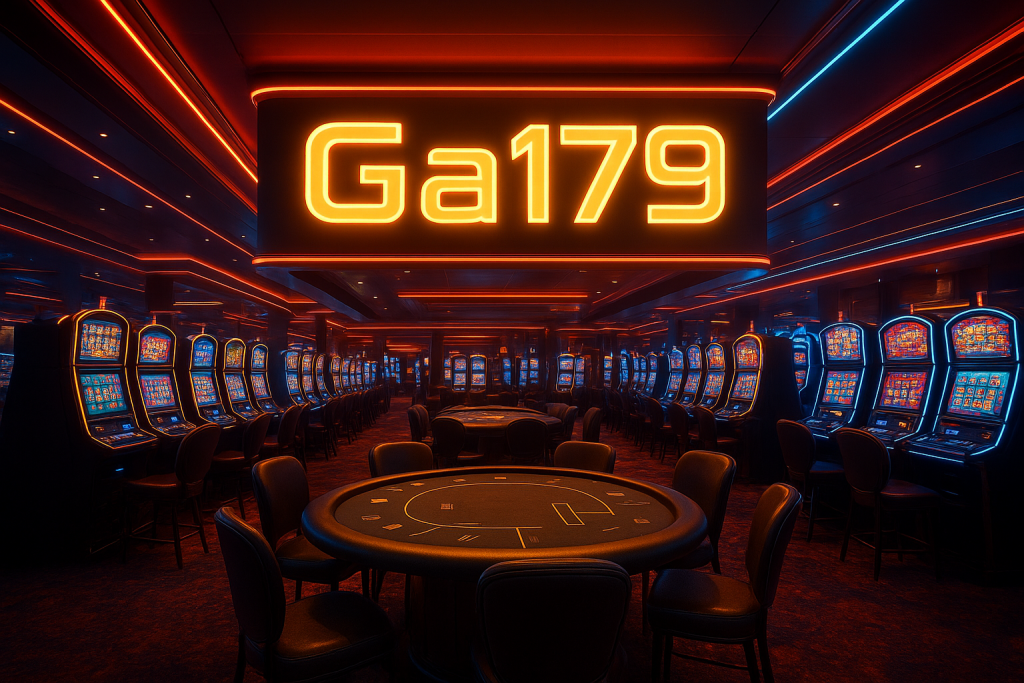
Casino gaming is not just about luck—it’s also about understanding the psychology behind decision-making and behavior. Many successful players know that managing emotions, reading patterns, and staying disciplined are just as important as learning the rules of the games. Whether you’re playing at a physical venue or online at platforms like Ga179 knowing the mental side of gaming can greatly improve your results and enjoyment.
One of the most critical aspects of casino psychology is emotional control. Gambling can be exciting, but excitement can quickly turn into frustration or desperation after a loss. The best players keep a cool head, knowing that no single win or loss defines the outcome of their overall session. This mindset helps prevent chasing losses, which often leads to bigger mistakes and larger losses.
Another key factor is risk assessment. Successful players think about probabilities rather than just hoping for a lucky outcome. In games like blackjack or poker, this means calculating odds and making logical decisions based on available information. Even in games that rely heavily on chance, like slots or roulette, understanding payout structures and volatility levels can help in selecting the most suitable bets.
The illusion of control is a common psychological trap in casino gaming. Players sometimes believe their actions directly influence purely random outcomes, such as pressing a slot button at a certain time. Recognizing that randomness is part of the game can free you from superstitious thinking and lead to more rational play.
Casinos—both online and offline—are also designed with psychological triggers that keep players engaged. Bright lights, celebratory sounds, and near-miss outcomes are all part of creating an immersive experience. For instance, when a slot machine shows two jackpot symbols and a third just above the payline, it triggers a strong urge to keep playing, even though the result was purely random.
Time perception also plays a role. Many players lose track of time while gaming, especially in environments without clocks or natural light. Online platforms replicate this effect with continuous gameplay and easy betting options. Setting time limits before you start playing can help maintain balance and avoid unplanned marathon sessions.
Discipline in bankroll management is another cornerstone of successful play. Before sitting down at a table or logging into a casino site, experienced players decide exactly how much they are willing to risk—and they stick to it. This prevents emotional spending and ensures that gambling remains a form of entertainment rather than a financial burden.
In games of skill like poker, understanding opponent psychology can be just as important as knowing the rules. Reading body language, betting patterns, and emotional cues can give you an edge over other players. Online poker requires a slightly different approach, focusing more on betting behavior and timing rather than physical tells.
Confidence also matters, but it needs to be balanced with caution. Overconfidence can lead to reckless decisions, while too much self-doubt can cause you to miss profitable opportunities. Successful gamblers cultivate a mindset where they trust their strategies but remain open to adapting when situations change.
One often-overlooked psychological tool is taking regular breaks. Stepping away from the table or the screen allows you to reset emotionally and think more clearly. Many poor decisions are made when players are tired, stressed, or overly invested in a single session’s outcome.
Finally, maintaining perspective is essential. Casino games are ultimately designed to favor the house, and while skilled play can improve your odds in certain games, there is always an element of risk. Viewing gambling as entertainment rather than a guaranteed income source helps keep expectations realistic and experiences enjoyable.
In conclusion, mastering the psychology of casino gaming is just as important as learning the games themselves. By understanding emotional control, avoiding cognitive traps, and practicing disciplined bankroll management, players can create a more rewarding and sustainable gaming experience. Whether you’re at a high-stakes poker table or spinning reels for fun, the right mindset can make all the difference in the long run.